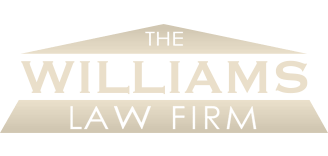Pro Hac Vice: A Guide for Outside Counsel in the Court of Chancery
Pro Hac Vice for Chancery Cases in Delaware
Pro hac vice is when a state court admits an out-of-state licensed attorney of another jurisdiction to appear before the Delaware court. The phrase pro hac vice is Latin and means “for this turn.” Admission pro hac vice in Delaware is a privilege, not a right. Delaware courts expect the highest order of civility and professionalism, and the courts do not take applications lightly. This is set forth in the “Guidelines to Help Lawyers Practice in the Court of Chancery.”
This provides a brief overview of what to expect of local Delaware counsel when representing a client pro hac vice in the Delaware Court of Chancery with jurisdiction generally covering matters of business, trust, and corporate litigation.
How do I apply for Pro Hac Vice admission to practice for a particular case in Delaware State Court?
Admission pro hac vice is at the discretion of the Court. For an attorney to apply, they must have a Delaware attorney apply on their behalf through a motion with the Court. Each Court and each matter to which an attorney wishes to be admitted pro hac vice requires a separate application.
Accompanying the motion for admission filed by the Delaware counsel, the applying attorney must submit an application certifying ten (10) items.
- The applicant is a member of good standing in the bar of another state.
- The applicant shall be bound by the Delaware Lawyer’s Rules of Professional Conduct.
- That applicant has reviewed the Statement of Principles of Professionalism for Delaware Lawyers (previously Principles of Lawyer Conduct).
- The applicant and all attorneys of the applicant’s firm involved in the Delaware case will be bound by the Rules of the Court.
- The applicant consents to the appointment of the Clerk of the Court as agent for service of process.
- The number of actions in any Delaware Court the applicant has appeared in the last twelve (12) months.
- The applicant has paid the admission fee and will pay the fees associated with every subsequent year.
- If the applicant has been disbarred, suspended, or subject to any pending disciplinary proceedings in any jurisdiction.
- That the applicant does not maintain an office in Delaware, and if they do, where.
- Identify all states where the attorney has been admitted at any time.
It is common practice in Delaware to include with the motion a brief sample order for the presiding judge or magistrate to grant.
Links to rules, motion, and statement, or forms for pro hac vice.
Role of Delaware Counsel: Substantive Participation and Supervision
The custom of referring to “local counsel” is largely discouraged in favor of “Delaware Counsel.” This is meant to reflect that Delaware counsel must be involved in all aspects of the litigation and is not merely an administrative or ministerial role. This is especially true in the Delaware Court of Chancery.
In the Court of Chancery, the attorney admitted pro hac vice is not allowed to (1) sign pleadings, (2) file documents with the Court, (3) communicate directly with the Court, or (4) attend proceedings without Delaware counsel, absent express permission from the Court.
Delaware counsel plays a central role in litigation. Be sure to request substantive advice on court rules, statutes, and Delaware case law from Delaware counsel. Delaware counsel reviews and revises briefs, motions, and pleadings a few days in advance of filing deadlines to ensure accuracy because Delaware counsel is required to sign the filings.
Civility is Crucial in Delaware
The Delaware courts take civility seriously. As Vice Chancellor Glasscock explained: “The norms of civility and candor expected of Delaware lawyers are not only a part of the heritage of practice cherished by our bar, but are essential to the administration of justice.” (Lendus, LLC v. Goede, 2018 WL 6498674, at *1 (Del. Ch. 2018)). Civility means, “conduct that shows respect not only for the courts and colleagues, but also for all people encountered in practice.” (Principles of Professionalism for Delaware Lawyers A. 4). A failure to be civil can result in revocation of pro hac vice admission, referral to the Delaware Office of Disciplinary Counsel, and the disciplinary counsel of the attorney’s home state.
The Williams Law Firm, P.A. has experience moving the admission of large and small firm attorneys from outside Delaware and advising them on Delaware law and practice before the Court of Chancery. Having a boutique, experienced law firm assist as Delaware counsel is a valuable resource to obtain a favorable resolution.


